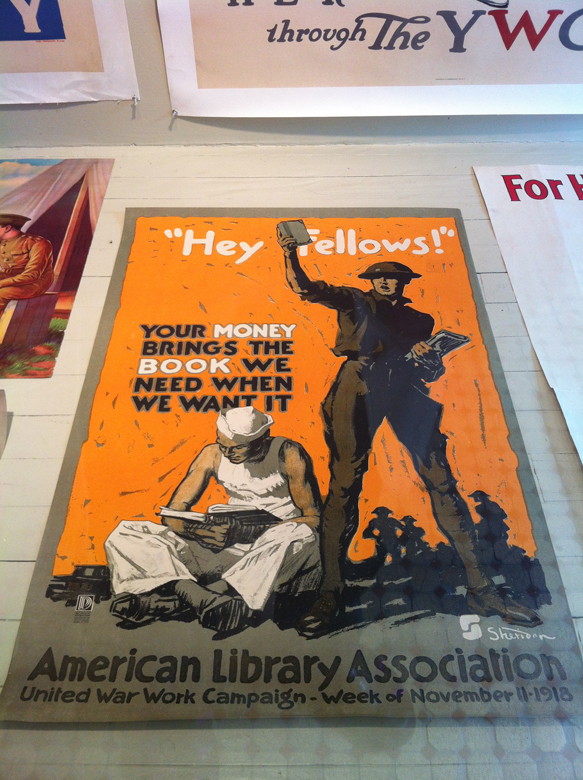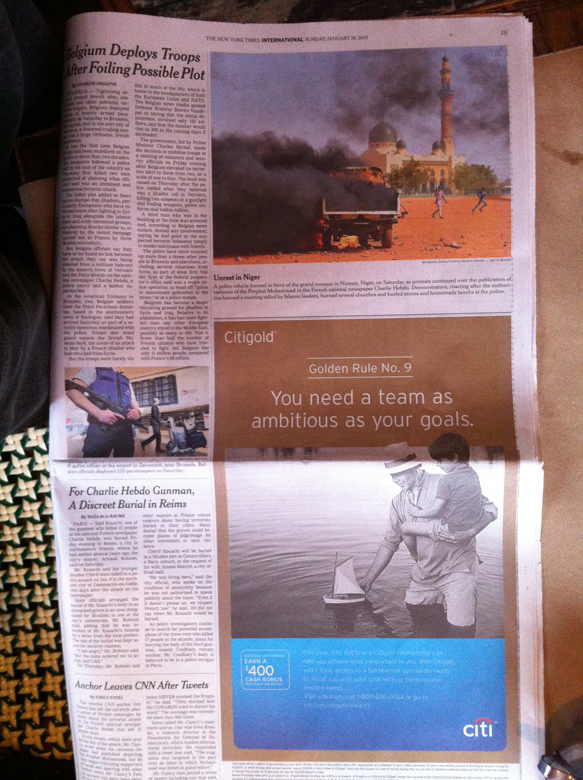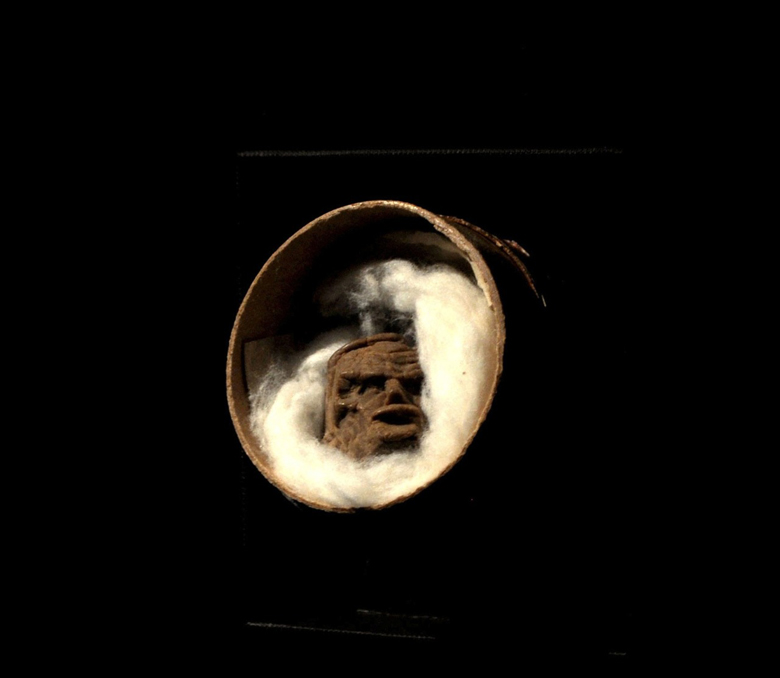
LXXIII
And that wanted book, was it perhaps Lytton Strachey’s Eminent Victorians? Or Vicente Blasco-Ibáñez’s Four Horsemen of the Apocalypse? P’raps Heinrich Mann’s Man of Straw, Willa Cather’s My Antonia, or Booth Tarkington’s The Magnificent Ambersons?
Unlikely to have been Bertrand Russell’s Introduction to Mathematical Philosophy, or the suppressed and “obscene” medieval romance Jurgen, by James Branch Cabell. Nor Sherwood Anderson’s Winesburg, Ohio, nor Gide’s La symphonie pastorale, nor Wodehouse’s My Man Jeeves, nor Sassoon’s War Poems, for these were not published until after the armistice was signed and the latter’s Military Cross, pinned on him in 1917, chucked into the sea.

And have all these helmeted fellows, about to go over the top, just been interrupted in the act of reading “Prufrock,” or other of Eliot’s Observations?
Ah synthesis, ah Lallans.
Though Burns and Stevenson (respectively below) use the term, a variant on lawlands or lowlands, to refer to the Scots language as a whole.
They took nae pains their speech to balance,
Or rules to gie;
But spak their thoughts in plain, braid* lallans,
Like you or me.
[Epistle To (the painter) William Simson]
“What tongue does your auld bookie speak?”
He’ll spier;** an’ I, his mou to steik***: ”
No bein’ fit to write in Greek,
I wrote in Lallan,
Dear to my heart as the peat reek,
Auld as Tantallon.
[The Maker to Posterity]
* broad ** ask *** stitch, fasten, shut
Can the intentionality, in drawing the nude, “grasp” the body’s form and yet allow it to transform? i.e. the transitory nude?
Invent nothing. Allow anything.
Wanters o’men come ilk day Leezie seekin’,
frae hill an’ frae valley, frae hut an’ frae ha’;
some in gay cleedin’, some barely a steek on,
wee gilpies,* young widows, auld maidens an’ a’.
[from “Leezie McMinn” a mid-19th century skit by Samuel Turner about a fortune teller or spae-wife]
* lively or frolicsome youth of either sex
Bumper Ontology 101:
HOW’S MY FORM? WHAT’S MY TRUTH? CALL 1800…
TO
THE YOUNGER HERPETOLOGISTS
OF AMERICA
whose high standards of professional ethics
and spirit of mutual cooperation
assure them a brilliant future
in their chosen field.
Without their enthusiastic aid
this book would have been
another five years in the making.
[Dedication to Roger Conant, A Field Guide to Reptiles and Amphibians. Boston: Houghton Mifflin Co. 1958]
Eleven-year old boy soprano Connor Tsui is a seventh-grade student at the Special Music School of America. He plays cello and piano, and, as a member of the Metropolitan Opera Children’s Chorus, has been cast in Puccini’s Turandot, Berlioz’s Les Troyens, Britten’s A Midsummer Night’s Dream, and Richard Strauss’s Die Frau ohne Schatten. He is currently singing the role of First Spirit in Mozart’s The Magic Flute, reprising the role in which he appeared last season. Connor Tsui is a soccer fan and loves playing Clash of Clans on any type of screen. [Program notes for the New York Philharmonic’s performance of Handel’s Messiah, December, 2014]

In which Water is beneath Fire.
Clash, klash, kalash:
Describing the assault on the Paris office building Thursday, a film production company staffer on the same floor as Charlie Hebdo told how a colleague who stepped out for a smoke spotted the gunmen just before the attack. “He caught sight of two men in balaclavas with Kalashnikovs. He ran back up crying, ‘Kalash, Kalash, Kalash!’ We shut the door and barricaded ourselves in our offices,” said Martin Boudot, a documentary maker.
“We didn’t know what was going on, but when we heard the first bursts of fire, we realized. We could hear that these were shots designed to kill. Two, three shots each time”… [New York Post, 1/9/15]
Kalash, klash…
On any type of screen.
In the human body as in the world, generative, life-sustaining “internal alchemy” occurs when (controlled) Fire, li, is placed beneath Water, kan. The classic and ready-to-hand image is one of a pot of water being heated over a controlled fire to produce steam, i.e. qi-breath, thus perpetuating a regular cycle of evaporation and condensation.
Water beneath Fire, however, represents a potentially dangerous reversal of this balance. Fire follows its tendency to rise and Water to sink. When these elements separate and fail to interact harmoniously – they literally dis-integrate – producing illness in the body and disorder in the mind, or more globally, what the Chinese, at least according to urban legend, call “interesting times.”
Am I like my father? In the sense of drinking excessively? Of being dead?
No, but I do like to read in bed lying on my right side, head propped up on right arm.
And Tolstoy.

